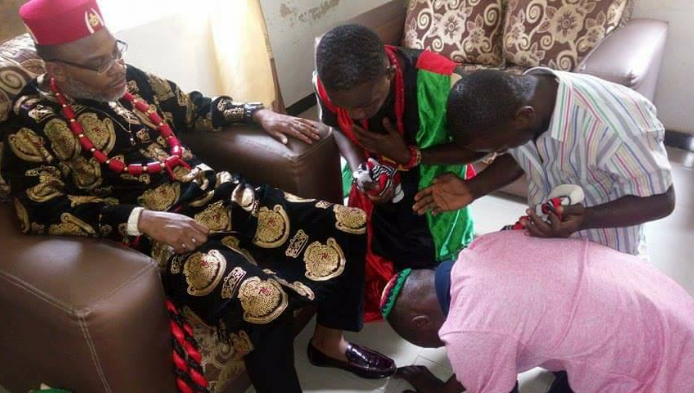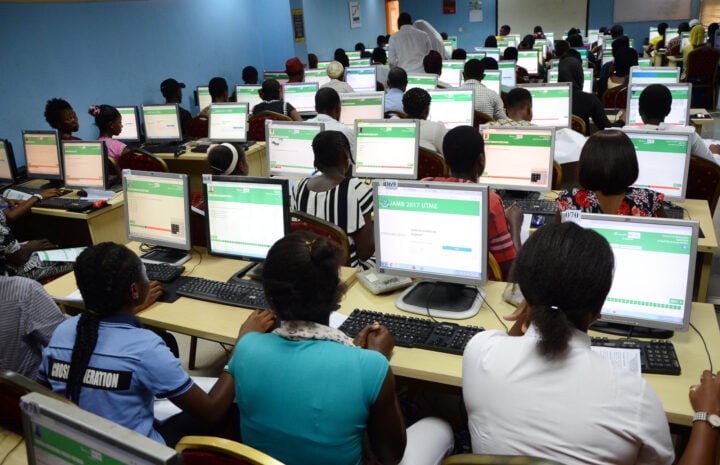BY OLAWALE ROTIMI & HABIBA MOHAMMED
It has not been the best of times for Nigerian children lately, despite progress made on few fronts, there has been a number of major setbacks for children in Nigeria. A five-minute walk on the street of any city in Nigeria will convince any doubter.
Over the last five years, the displacement of persons in the North Eastern states of Borno, Yobe and Adamawa caused by the Boko Haram insurgency has placed the biggest burden on women and children who have had to flee their communities to a safer environment; which in some cases also turn out unsafe.
Education has been the most hit by the Boko Haram insurgency, at the peak of the insurgency in 2014, all schools in Borno state were closed, denying boys and girls the opportunity for a decent education, the National Union of Teachers have also reported that more than 600 teachers have been killed by the terrorists. Furthermore, it is no longer news that young girls have been major victims and bargaining tools of the insurgents. Boko Haram is known to kidnap young girls, the most prominent of these was the kidnap of Chibok girls in their dormitory in April 2014. The terrorist group also continues to use girls as suicide bombers to carry out their dastardly acts majorly in Borno State.
Advertisement
More recently, the Nigerian government have made strides in curtailing the spread of Boko Haram, it is cheery news that despite the persistent problems, many schools have re-opened in Borno and children have returned to the classroom.
Asides the challenge in the North East, more than 13 million children are out of school in Nigeria, representing more than half of all the out-of-school children globally. While these seem to be a huge challenge, there exist opportunities to close this gap as well as guarantee 12 years of quality education for girls and boys in Nigeria. The quality of education is another debate.
The passage of the Child Rights Bill into law represents one of such opportunities. Following the passage by the National Assembly in 2003, 25 states in Nigeria mostly in the South have domesticated the law by passing similar bills into law in the state. The time is ripe to ensure that the remaining 11 states do same. The passage of the Child rights bill into law at sub-national level guarantees the rights of children for several things including a right to education and delaying early marriage for girls until age 18 and ensuring they have decent education. Educating girls is not a burden, it represents smart investment as each year a girl stays in school, it adds 12% to her future income. This has been proven.
Advertisement
While states have complained that there isn’t enough to finance 12 years of free and quality education for children, data obtained from the Universal Basic Education Fund shows that several states failed to access over 57 billion Naira in funding over the last three years. Every unspent fund represents a missed opportunity to send children to school. It is time to harness every resource available to ensure that education of boys/girls are guaranteed. While the Universal Basic Education in itself was established in 1999 and institutionalized through an act of the National Assembly in 2004 to provide funding and support to guarantee nine years of basic education for children in Nigeria, it is high time to revisit the act and make commitments to align the act to the Sustainable Development Goals towards ensuring that we move from 9 to 12 years of quality education.
Finally, the recent initiative by the Federal Government to employ and deploy 500,000 teachers to schools across the country is a welcome initiative, we urge the government to ensure that an equal number of male and female teachers are employed especially in Science, Technology, Engineering and Mathematics (STEM) related courses. This idea is not one to play the federal character politics with; at least not now! Efforts must be made to ensure that only the best hands are recruited as teachers. It is foundational and key to finding a short and long term solution to this problem. Girls need role models in schools, employing bright, smart female teachers show young girls that they can also aspire and tackle seemingly difficult ‘male dominated’ courses and dream of a better world. Asides this, travels and learning visits should also be part of their education. It is important to triggering bigger dreams for these girls.
The opportunity to make a big difference in education is ripe, we only need to match this with a strong political will and a focus on tangible results ensuring that no child is left behind by guaranteeing 12 years of free, safe and quality education in Nigeria. The time to act is now!
Olawale & Mohammed are of the Gulmakai Girls education Champion of the Malala Fund
Advertisement
Views expressed by contributors are strictly personal and not of TheCable.
Add a comment






